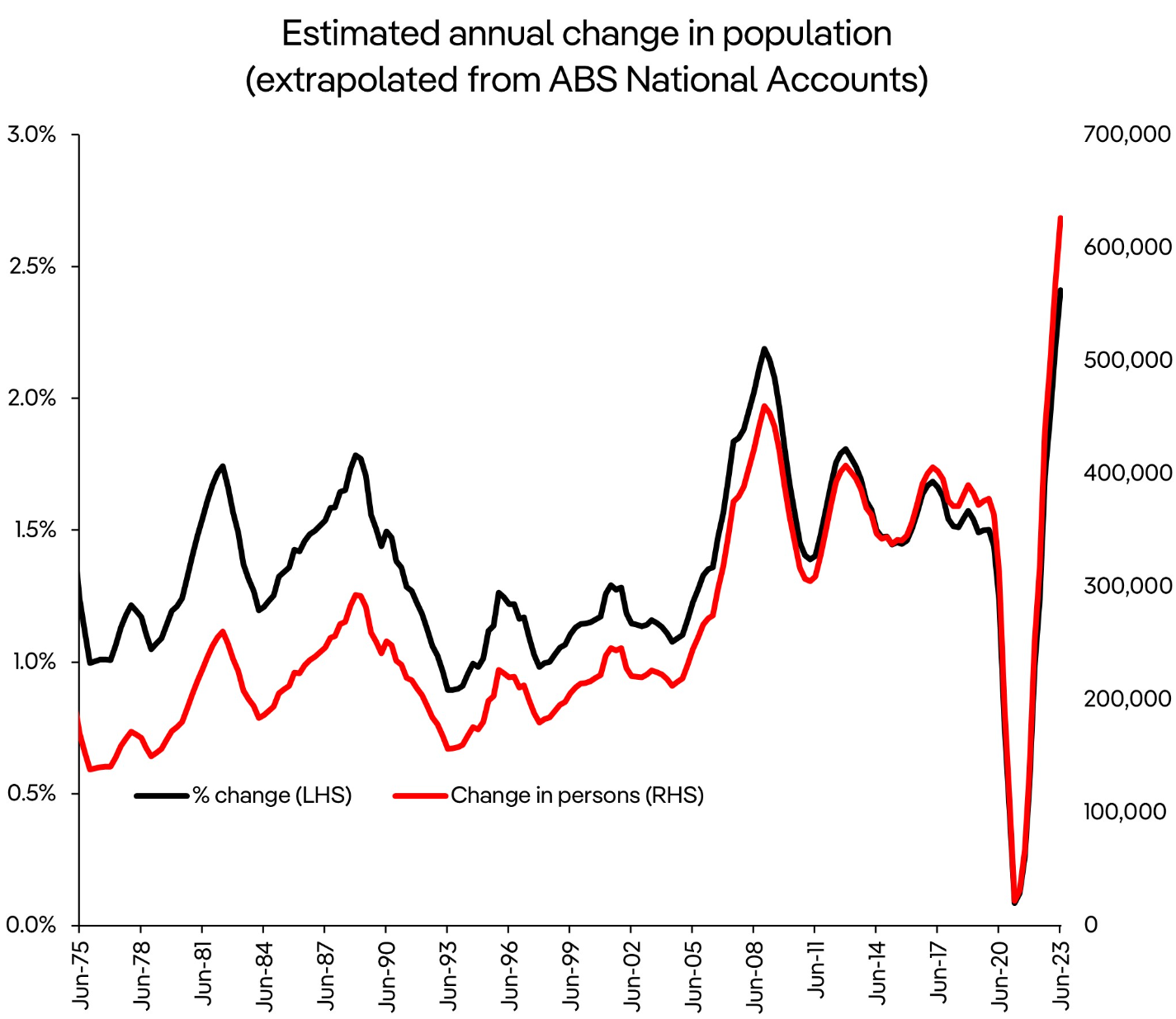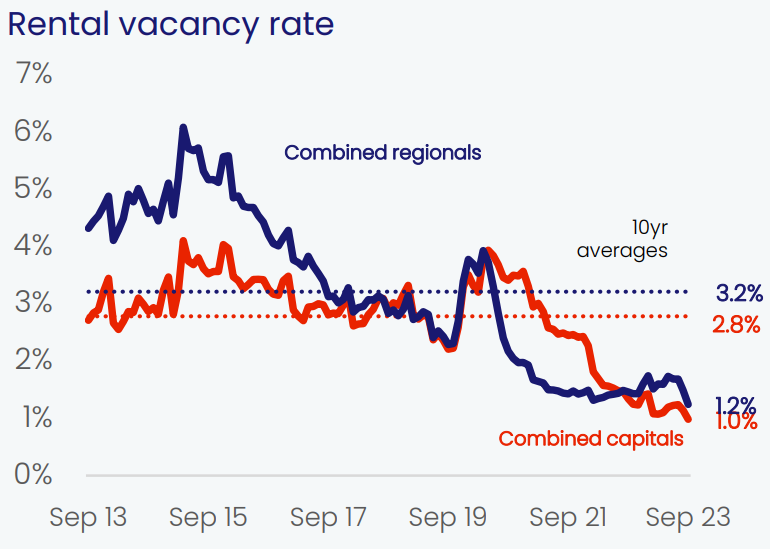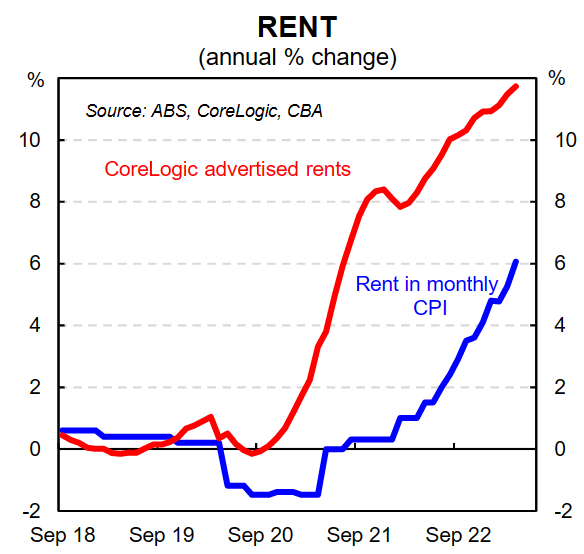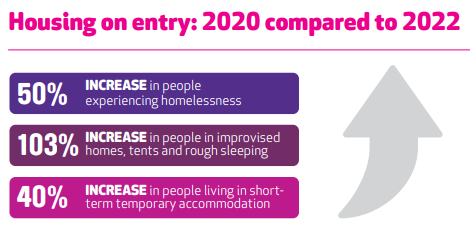One of the biggest accomplishments of Australia’s Albanese Labor Government has been the worst rental and homelessness crisis in living history.
Labor has opened the immigration floodgates, which has resulted in the largest population increase in Australia’s history: 626,000 in the 2022-23 financial year, driven by record net overseas migration of around 500,000:

Source: Cameron Kusher (PropTrack)
This extreme population growth has pushed rental vacancy rates to all-time lows:

Source: CoreLogic
Rental inflation has also surged, placing lower income renting households under severe financial stress:

Many households have tried to cope by moving into share accommodation to spread their costs.
Others have been forced into homelessness. According to National Shelter, there has been a 50% increase in homelessness since 2020 and a 103% increase in people living in “improvised homes” and “rough sleeping”:

The same forces are playing out in Canada, which has just experienced its largest population growth in history in number terms, driven almost entirely by the largest intake of migrants on record, according to Statistics Canada:
“After celebrating the Canadian population reaching 40 million on June 16, the country’s population was estimated at 40,097,761 on July 1, 2023, an increase of 1,158,705 people (+2.9%) from July 1, 2022”.
“The population growth on July 1, 2023, marks the highest population growth rate recorded for a 12-month period since 1957 (+3.3%), during the Hungarian refugee crisis and at the height of the baby boom”.
“In absolute numbers, the increase observed last year is more than twice the increase observed in 1957 (+555,000)”.
“If the rate of population growth seen this past year remained constant in the future, it would lead to the Canadian population doubling in 25 years”.
Predictably, Canada’s extreme immigration-driven population growth has caused rents to surge, plunging thousands of Canadians into homelessness:
“Canada is gripped by a surge in homelessness that has seen tens of thousands of people priced out of rental and real estate markets and left to live in the streets of the wealthy nation”.
“Researchers warn government data is vastly underestimating the number of homeless across the country, as the social ill spreads from major cities to small towns”.
“Nearly one in four homeless people found themselves on the street after being evicted from housing, according to the Quebec government report”.
“Between 2018 and 2022, the number of homeless people in Quebec increased by 44 percent, their numbers swelling to 10,000 last year”.
“Quebec, the second most populous province in Canada, is facing a serious housing shortage because of factors ranging from the pandemic to record immigration driving population numbers higher, fuelling demand”.
“Government data estimates there are some 235,000 homeless people across the country, but that is only counting people who access shelters”.
“We are largely underestimating the number… we could probably triple the current federal estimates”, said University of Western Ontario professor Cheryl Forchuk.
Canadian Prime Minister Justin Trudeau’s election manifesto was that “safe, adequate, and affordable housing is essential to building strong families, strong communities, and a strong economy”.
“We have a plan to make housing more affordable for those who need it most – seniors, persons with disabilities, lower-income families, and Canadians working hard to join the middle class”.
Instead, Trudeau has engineered the worst housing shortage in history by ramping immigration (demand) to unprecedented levels.
To add insult to injury, he has also delivered a sharp rise in unemployment by lifting the growth in labour supply well above demand:
Why do centre-left administrations like the Trudeau and Albanese governments hate the working classes so much that they deprive them of housing and force them to live on the streets?

